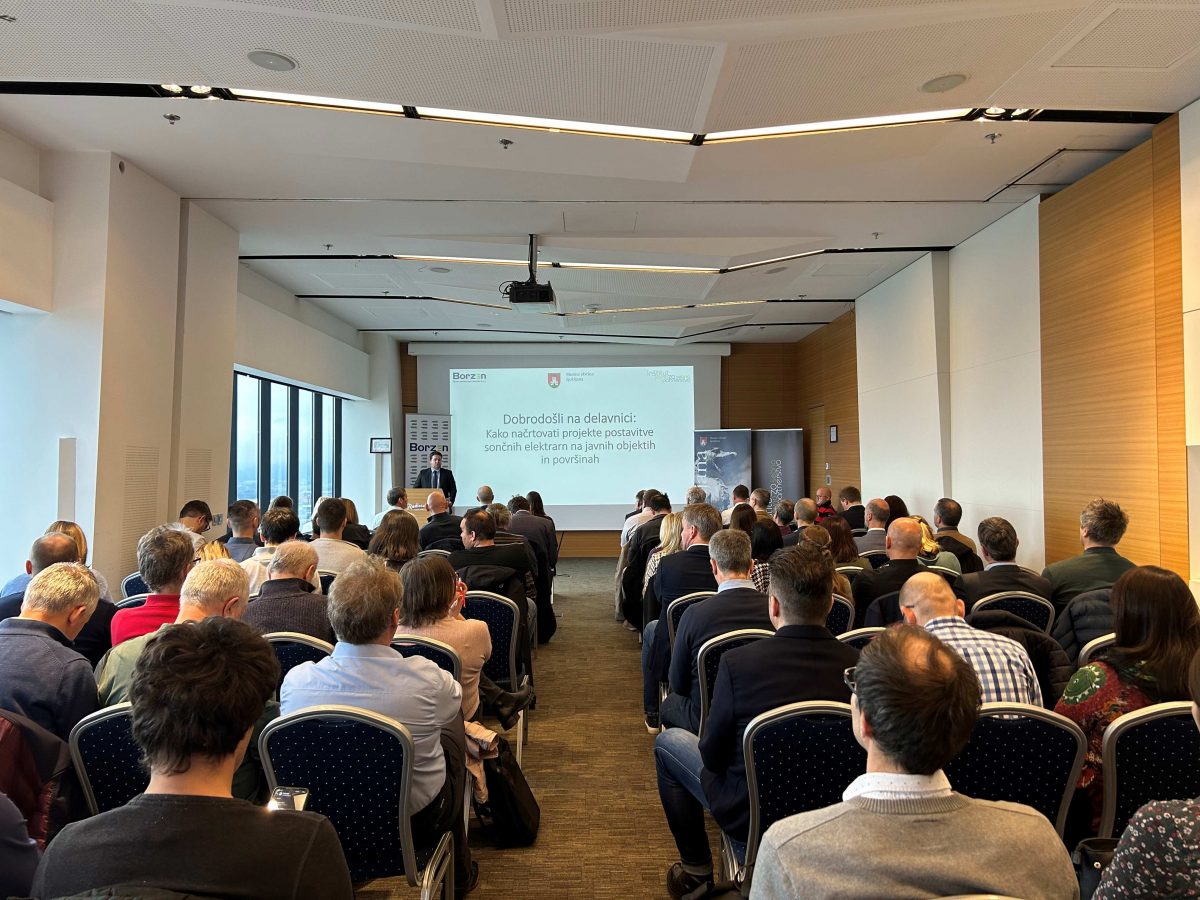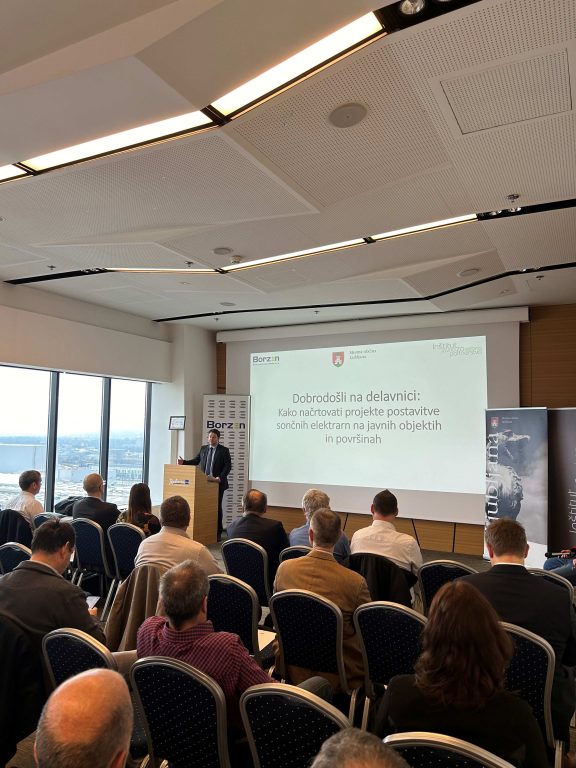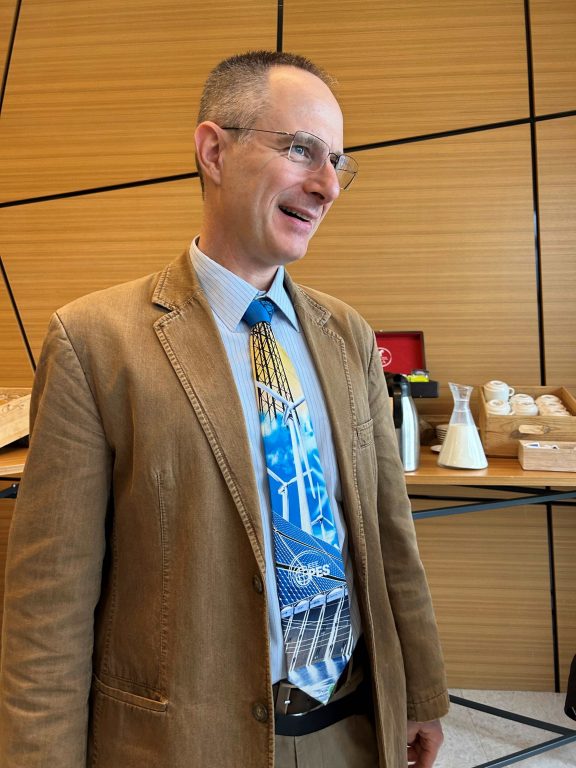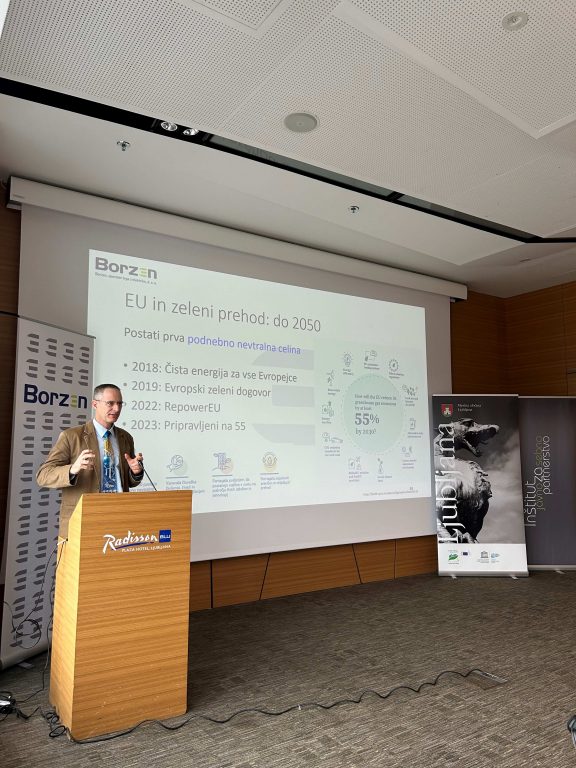
Workshop: How to plan projects for the installation of solar power plants on public buildings and surfaces
What: Workshop: How to plan projects for the installation of solar power plants on public buildings and surfaces
Where: Ljubljana, Slovenia
When: February 12, 2024

Workshop: How to plan projects for the installation of solar power plants on public buildings and surfaces, organized by the company Borzen in collaboration with the Municipality of Ljubljana and the Institute for Public-Private Partnership, is the first in a series within the BORZEN contact point. The workshop took place on February 12th in Ljubljana and was the first in a series within the BORZEN contact point, which will begin its operations in March. As part of the contact point, a series of workshops will take place throughout Slovenia, aimed at promoting the use of renewable resources.
Why a practical workshop?
The workshop provided us with answers to questions about the possibilities of co-financing public projects for the installation of solar power plants, which were presented by Klemen Košir from the Ministry of the Environment, Climate, and Energy – Department for Promoting Green Transition, and procedures for obtaining permits required for the installation of solar power plants. We learned about the future transparency of the permit acquisition procedures and the documentation process for investments in renewable energy sources, as well as where to turn for expert assistance, presented by Iztok Gornjak from Borzen, d.o.o. As a practical example of implementing a project for the installation of multiple solar power plants connected in an energy community according to the design- build- finance -operate-transfer (DFBOT) model, the project “Green Energy on Surfaces and Buildings of the Municipality of Ljubljana” was presented by Petra Šeme from the Municipality of Ljubljana. Examples of good practice and, of course, the challenges that followed were also presented by two speakers, Marko Hočevar from the Municipality of Kranj and Rajko Leban from GOLEA.
The other speakers, Marko Umberger from UM SVETOVANJE, technical consultancy, d.o.o., mag. Dejan Podhraški from ROC d.o.o., Jan Zakrajšek from ENERGETIKA LJUBLJANA, d.o.o., and Dr. Boštjan Ferk from the Institute for Public-Private Partnership, addressed various aspects: technical, legal, and economic, as well as risks associated with connection schemes in the implementation of self-sufficient communities. Prof. Dr. Andrej Gubina from the IRI Faculty of Electrical Engineering, discussed the challenges associated with solar power plant projects, focusing on billing issues and the reliability of electricity supply. He also addressed the benefits of self-sufficient energy communities, the problems they address, their operational mechanisms, their capacity to meet electricity demand, their sources of supply, and the various forms they can take.
Let us conclude with the sentiment expressed by one of them, who emphasized that knowledge holds greater significance than merely installing a solar power plant.


